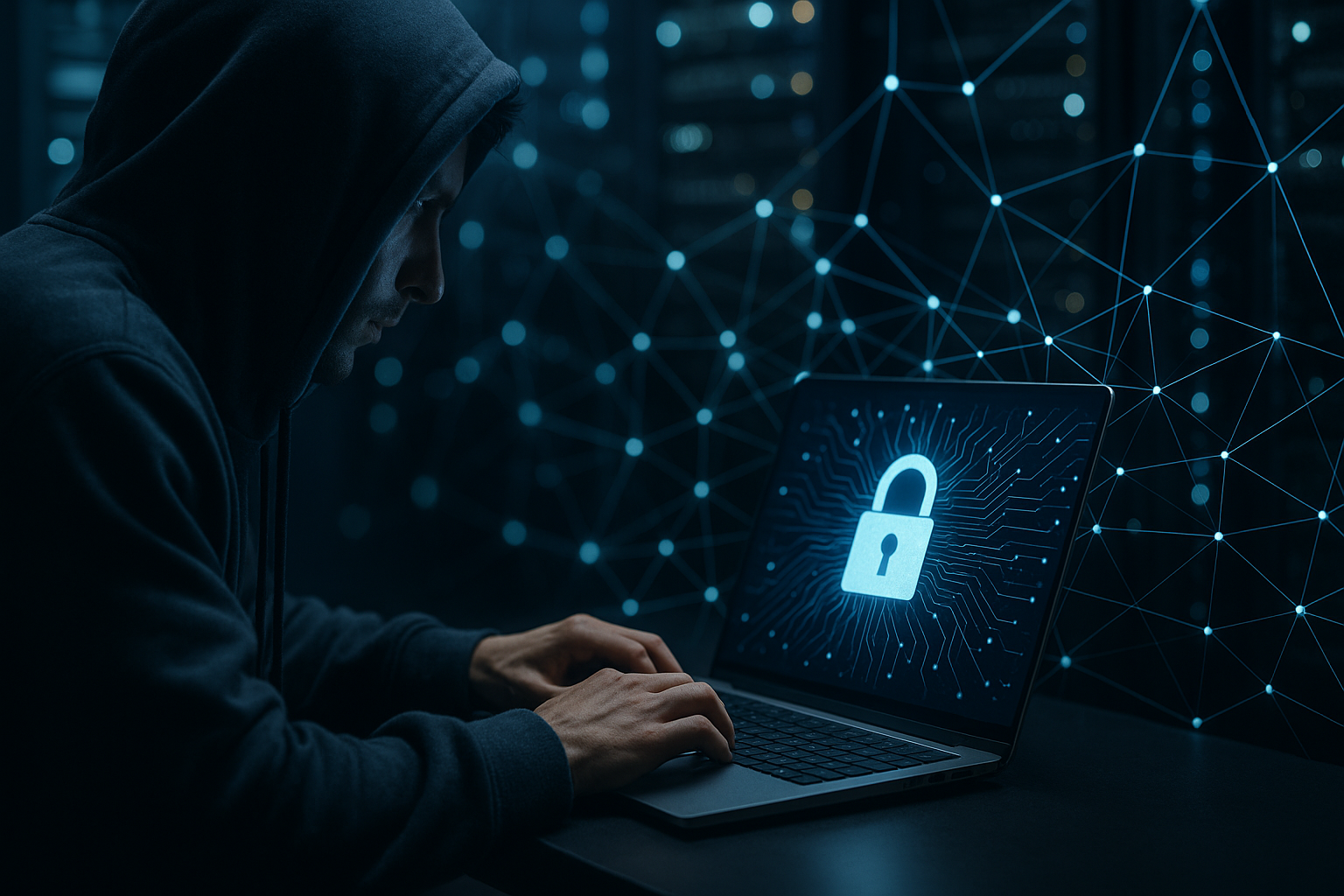Protecting Your Online Self: Cybersecurity Strategies for Digital Identity Security
In today's interconnected world, our digital identities have become as crucial as our physical identities. Digital identity refers to the entire collection of information about an individual, organization, or device online. As more aspects of life and business move online, safeguarding digital identities is vital to protecting privacy, ensuring secure transactions, and maintaining trust. Cybersecurity plays a central role in protecting these digital identities from theft and misuse.

What is a digital identity and why is it important?
A digital identity encompasses all the information about an individual that exists online, including personal data, social media profiles, and online accounts. It’s a virtual representation of who you are in the digital realm. Protecting this identity is crucial because it’s intimately linked to your personal and financial security. A compromised digital identity can lead to financial losses, reputational damage, and even legal complications. As more aspects of our lives move online, from banking to healthcare, the importance of securing our digital identities only continues to grow.
How can you secure your digital identity effectively?
Securing your digital identity involves multiple layers of protection. Start by using strong, unique passwords for each of your online accounts. Consider employing a reputable password manager to help generate and store complex passwords securely. Enable two-factor authentication (2FA) wherever possible, adding an extra layer of security beyond just a password. Regularly update your software and operating systems to patch potential vulnerabilities. Be cautious about the information you share online, especially on social media platforms. Remember, oversharing personal details can provide cybercriminals with valuable information to exploit.
What are the best practices for protecting sensitive data?
Protecting sensitive data is crucial in maintaining your digital security. Encrypt important files and communications, especially when using public Wi-Fi networks. Use a Virtual Private Network (VPN) to secure your internet connection and mask your online activities. Be wary of phishing attempts – never click on suspicious links or download attachments from unknown sources. Regularly back up your data to a secure, offline location to ensure you don’t lose critical information in case of a cyberattack. When disposing of old devices, ensure all data is thoroughly wiped to prevent potential breaches.
How can you ensure safe online transactions?
Safe online transactions are essential for protecting your financial well-being. Always verify the legitimacy of websites before making purchases or entering sensitive information. Look for https:// in the URL and a padlock icon in the address bar, indicating a secure connection. Use credit cards for online purchases when possible, as they often offer better fraud protection than debit cards. Monitor your bank and credit card statements regularly for any suspicious activity. Consider using virtual credit card numbers for online shopping, which can be easily cancelled if compromised.
What strategies can help in fighting identity theft?
Fighting identity theft requires vigilance and proactive measures. Regularly check your credit reports for any suspicious activities or accounts you don’t recognize. Consider placing a security freeze on your credit reports to prevent unauthorized access. Be cautious about sharing personal information over the phone or via email, especially if you didn’t initiate the contact. Shred or securely dispose of documents containing sensitive information. Use privacy settings on social media platforms to limit the amount of personal information visible to the public.
What are the latest trends in digital identity fraud prevention?
In the United Kingdom, digital identity fraud prevention is evolving rapidly to counter sophisticated cyber threats. Biometric authentication, such as fingerprint or facial recognition, is becoming increasingly common for secure access to devices and online services. Artificial Intelligence and Machine Learning are being employed to detect unusual patterns in user behaviour that might indicate fraud. Some financial institutions are implementing behavioural biometrics, which analyse unique patterns in how individuals interact with their devices. Additionally, there’s a growing emphasis on educating the public about cybersecurity risks and best practices to empower individuals in protecting their digital identities.
How do cybersecurity services compare in the UK market?
When it comes to cybersecurity services in the UK, several providers offer comprehensive solutions for digital identity protection. Here’s a comparison of some notable options:
| Provider | Services Offered | Key Features |
|---|---|---|
| Norton | Antivirus, VPN, Identity Protection | Real-time threat protection, Dark web monitoring |
| McAfee | Antivirus, Identity Theft Protection | Multi-device compatibility, Secure VPN |
| Kaspersky | Internet Security, Password Manager | Webcam protection, Safe online banking |
| Avast | Antivirus, SecureLine VPN | Wi-Fi security scan, Anti-phishing protection |
| Bitdefender | Total Security, VPN | Multi-layer ransomware protection, Microphone monitor |
Prices, rates, or cost estimates mentioned in this article are based on the latest available information but may change over time. Independent research is advised before making financial decisions.
In conclusion, protecting your digital identity requires a multi-faceted approach combining technological solutions with mindful online practices. By implementing strong passwords, using encryption, being cautious with personal information, and staying informed about the latest cybersecurity trends, you can significantly reduce the risk of falling victim to digital identity fraud. Remember, in the digital age, your online security is an ongoing process that requires constant vigilance and adaptation to new threats.




